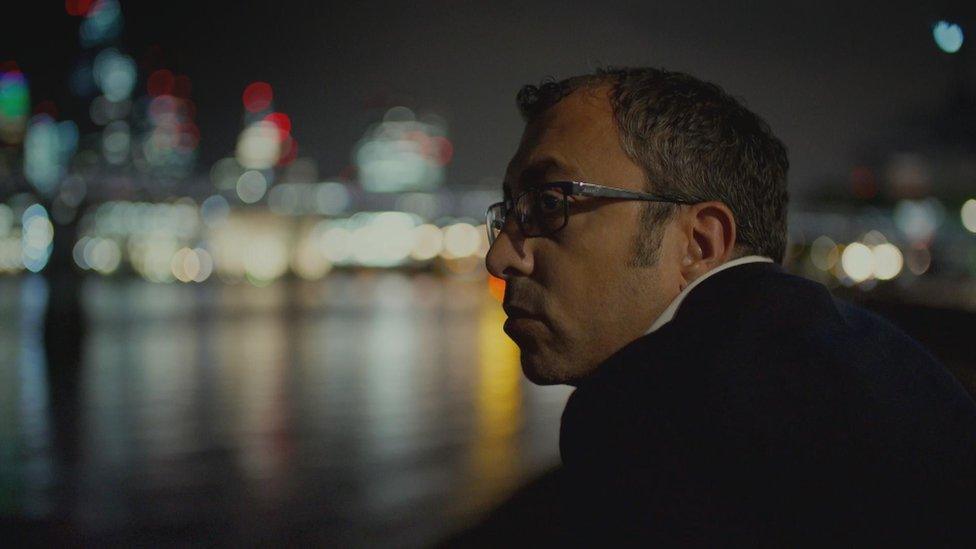EY drops appeal against $10.8m whistleblower payment
- Published

Auditor Amjad Rihan's audit team discovered that a gold refiner had paid out $5.2bn in cash in 2012
Global accounting and consultancy firm EY has dropped its appeal against a judge's decision ordering it to pay $10.8m to a whistleblower who flagged money laundering concerns.
A BBC investigation revealed EY covered up evidence of smuggling by an organised crime gang.
The gang was laundering drug money from the UK via Dubai's gold markets.
Amjad Rihan's audit team discovered that a gold refiner had paid out $5.2bn (£3.7bn) in cash in 2012.
But EY didn't report suspicious activity to the money laundering authorities.
EY also helped to cover up a crime - the export to Dubai of gold bars that had been disguised as silver to avoid export limits on gold.
Amjad Rihan pressed his bosses to report red flags such as the large amount paid out in cash and the gold bars disguised as silver. But instead, he was forced out of the consultancy.
Mr Rihan brought a claim against EY and last April a judge found in his favour.
In his judgment, Mr Justice Kerr singled out for criticism Mark Otty, external, then EY managing partner for Europe, the Middle East and Africa, to whom Mr Rihan had reported his concerns, who sat on EY's Global Executive and took charge of dealing with Mr Rihan's concerns. He also gave evidence at the trial.
How a drug gang laundered money
"He struck me as uninterested in questions of professional ethics. Although he is still part of the EY organisation, and although he expressed confidence soon after the claimant's later resignation that EY would sue the claimant, the laptop he was using at the time was not preserved," said Mr Justice Kerr in his judgment.
Mr Otty is now EY's Global Emerging Markets deputy chair.
Mr Rihan welcomed EY's decision to drop its appeal but said EY's leadership should accept personal responsibility for its breaches of professional ethics.
"They need to see heads rolling at EY. It's not satisfactory, when all this has happened, that everyone just stays in place," he told the BBC.
In a statement, EY said: "We remain disappointed by the trial judge's decision and by the subsequent refusal of leave to appeal the underlying findings of fact, with which we firmly disagree.
"With such an impediment, we concluded that our appeal on the law, even if successful, no longer merited the time and resources involved."
Related topics
- Published28 October 2019
